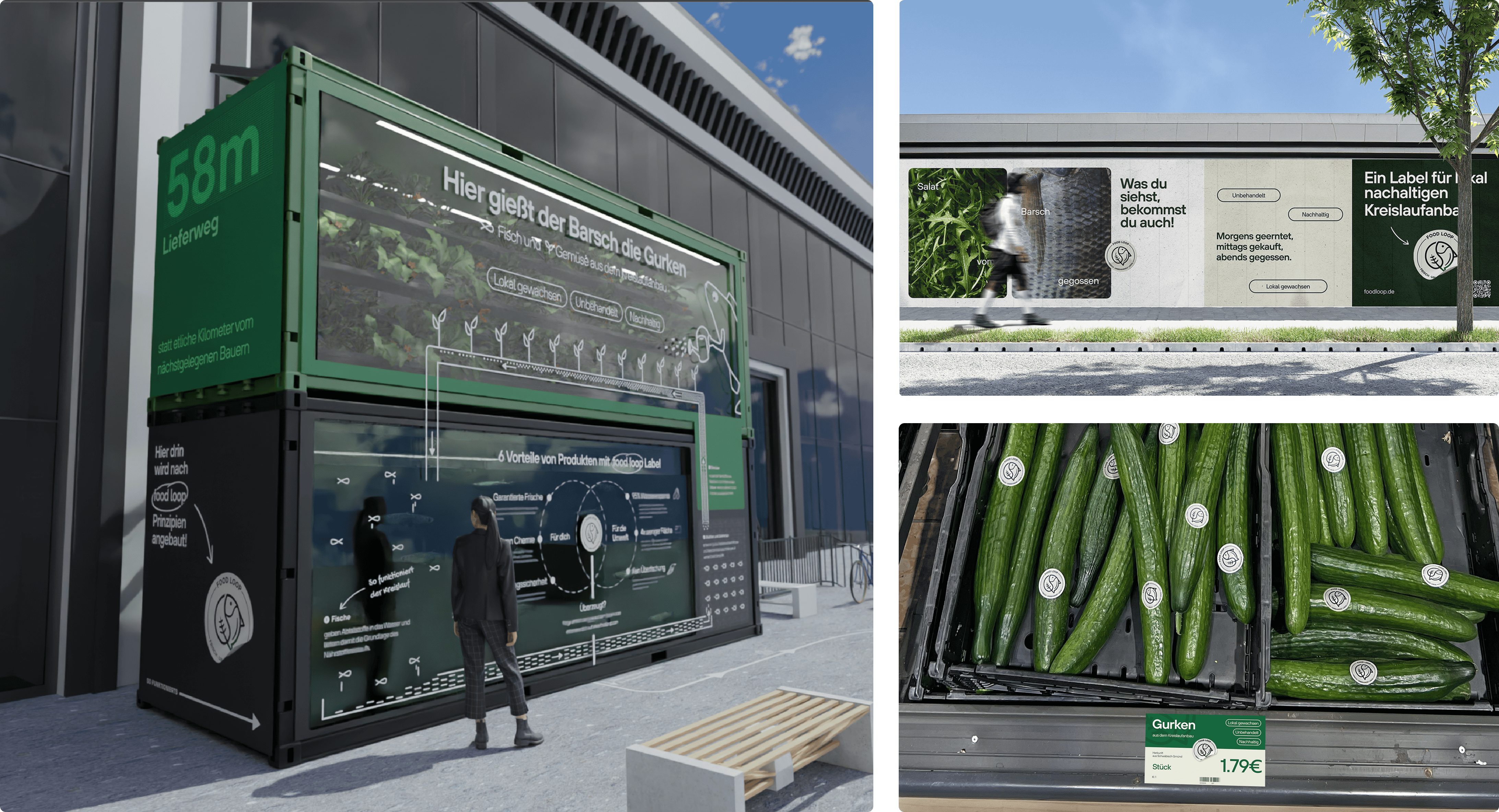
Watch launch video on Youtube
Why
Aquaponics, a sustainable method that integrates fish farming with plant cultivation, provides substantial environmental advantages, including reduced chemical usage and lower greenhouse gas emissions. Moreover, it is more resilient to drought and soil degradation, making it a more future-proof alternative to today’s conventional farming practices. Yet despite these benefits, aquaponics remains relatively unknown to the wider public, and only a small number of companies have adopted the approach.
How
Addressing this issue requires a holistic view of the entire supply chain, understanding the complex systems that determine which foods make it onto supermarket shelves and are available for consumers to purchase. Identifying effective points of leverage within this multi-stakeholder system led us to a classic chicken-and-egg dilemma: if consumers are unaware of the existance of aquaponic products, they won’t demand them and without demand, these products never be put on the supermarket shelves. That’s why we focused on the moment of purchase, designing an adaptive concept positioned around the supermarket environment that guides consumers through the full decision-making and buying process.
What
To raise awareness and build trust in aquaponic food systems, food loop takes a multi-layered communication approach that brings sustainable production methods directly into everyday life. At the heart of the concept is a repurposed shipping container placed in public shopping environments, where passersby can interact with a real aquaponic system and experience how fish and plants are cultivated together in a closed-loop cycle. Clear signage and visual cues guide visitors from the installation to the matching aquaponic products in nearby stores. These products are marked with a distinct label, comparable to organic or fair-trade seals, that signals their sustainable origin. To further encourage long-term engagement, food loop also includes a loyalty card system that rewards consumers for repeated purchases, helping to build habits around sustainable consumption.
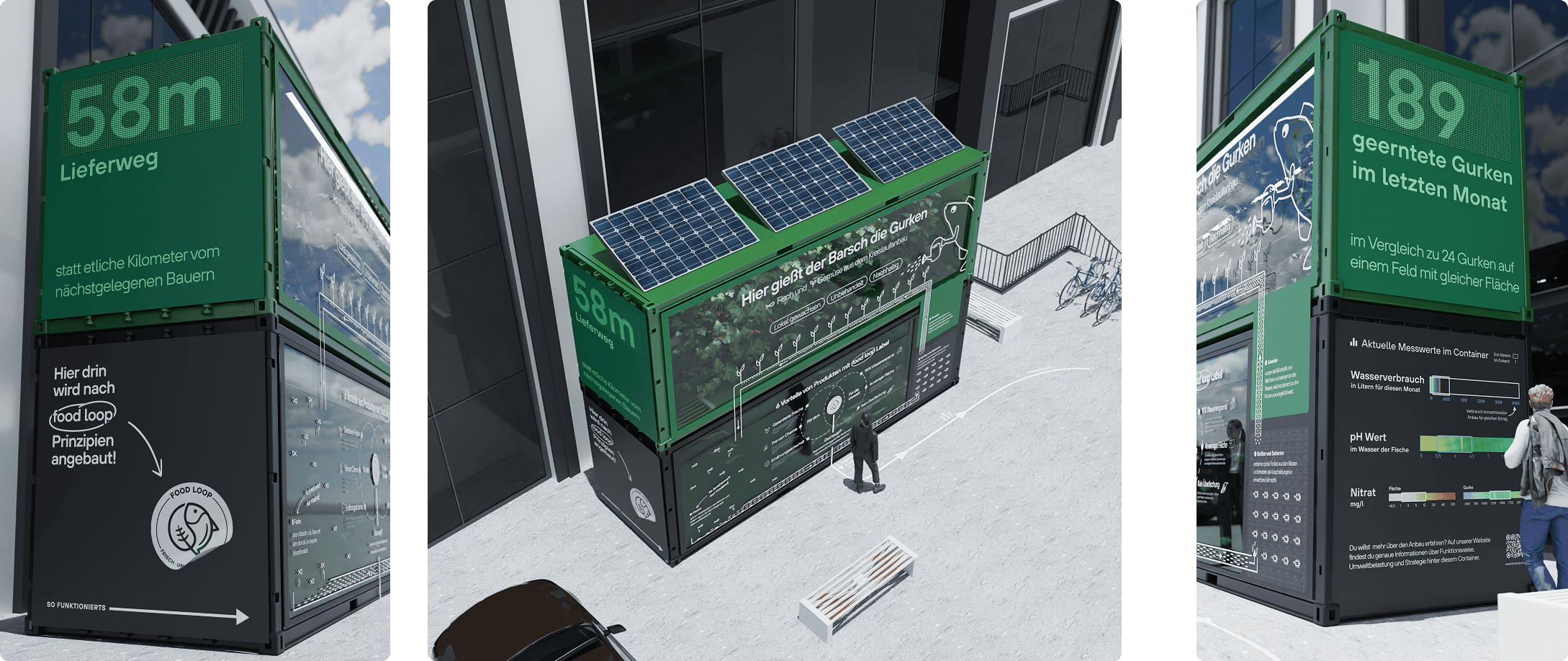
food loop container
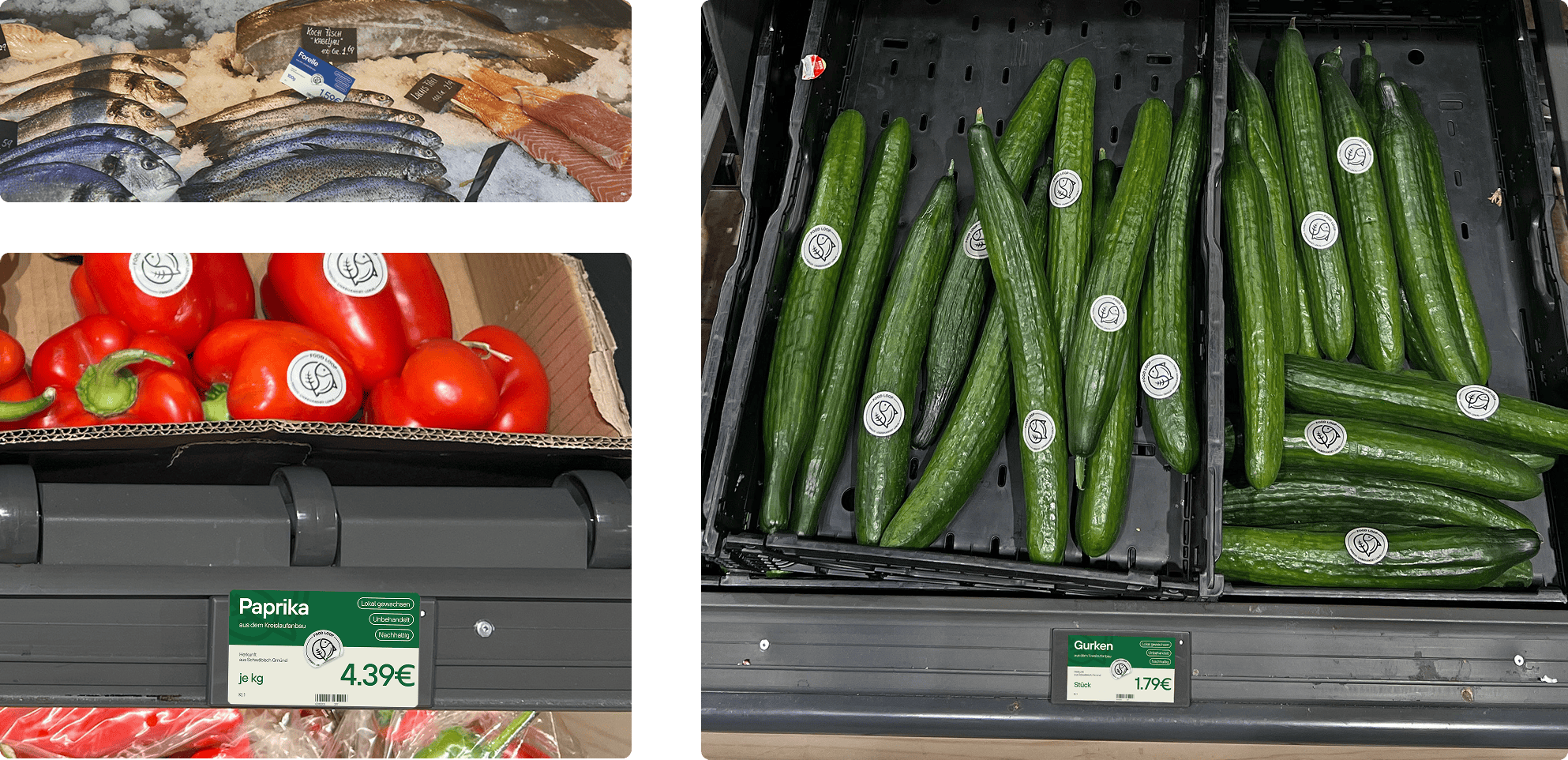
Product display in the supermarket and label
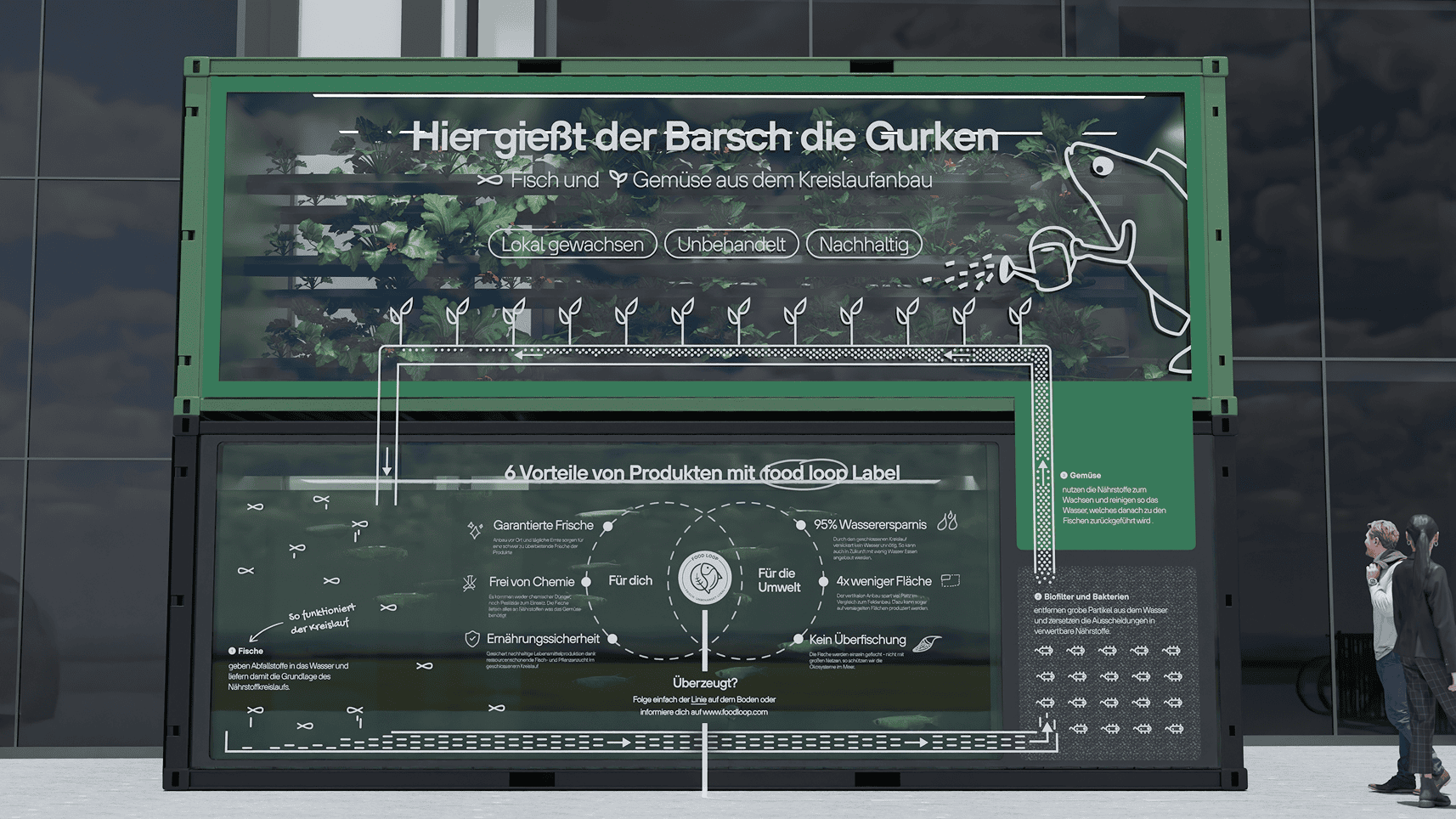
Container front

Sticker collection card
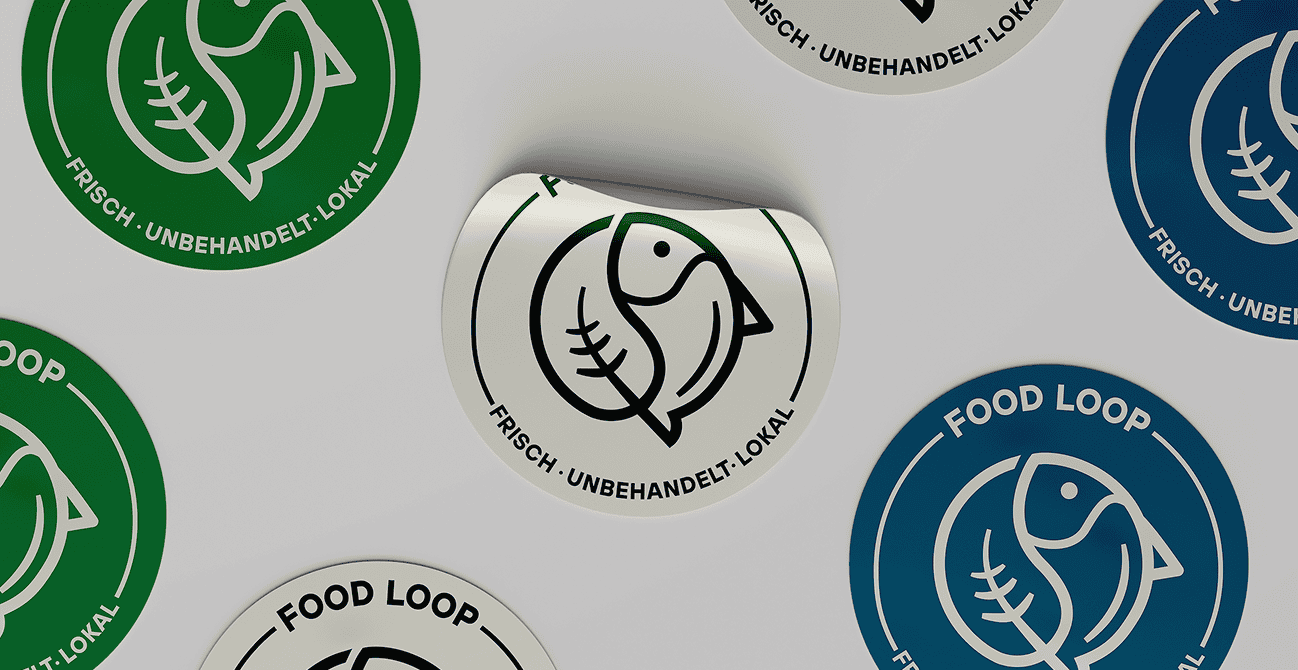
food loop sticker
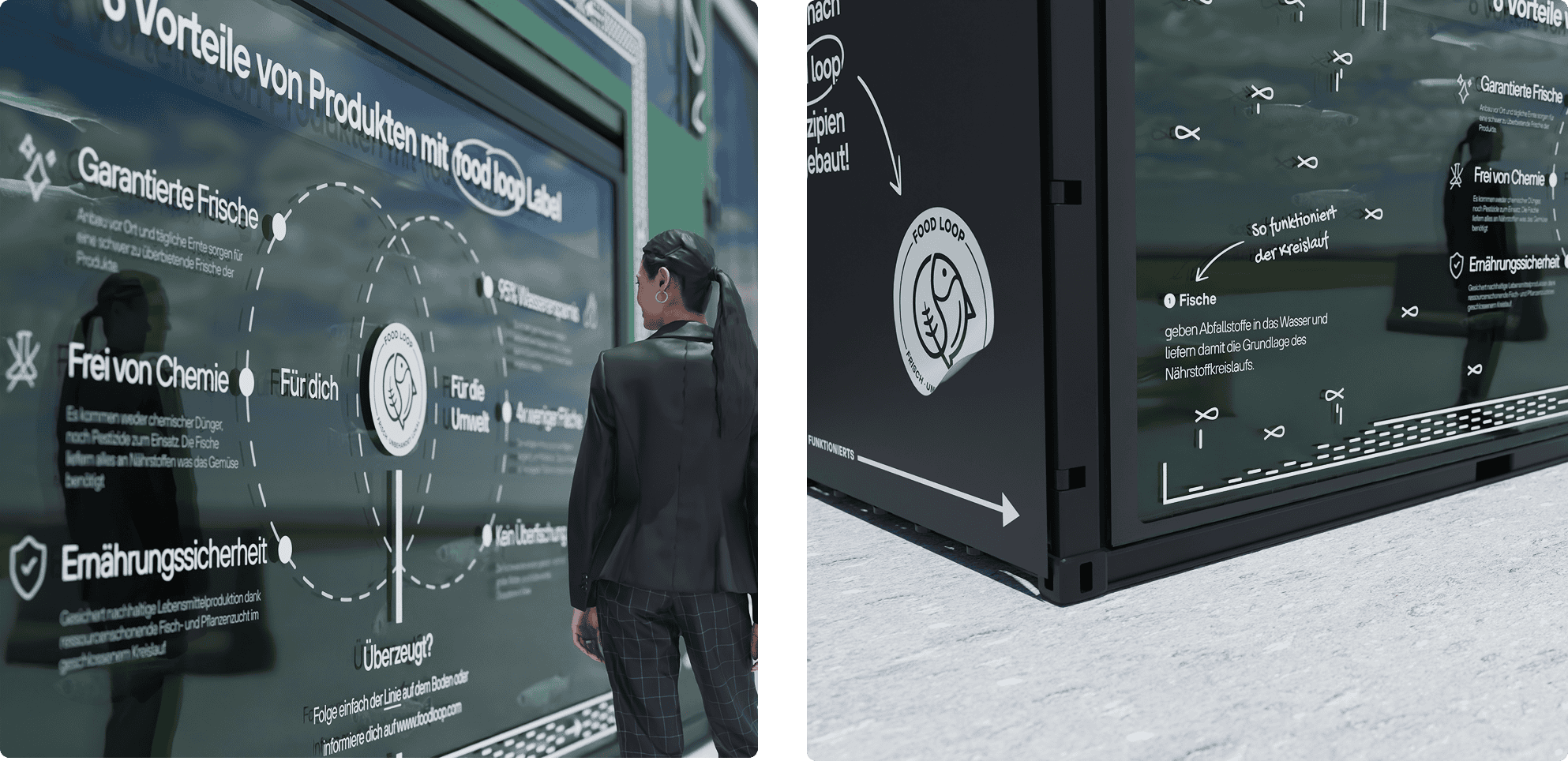
Container details

Branding posters and video frames